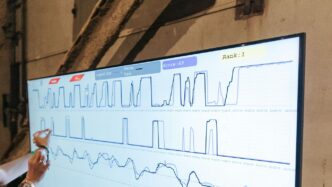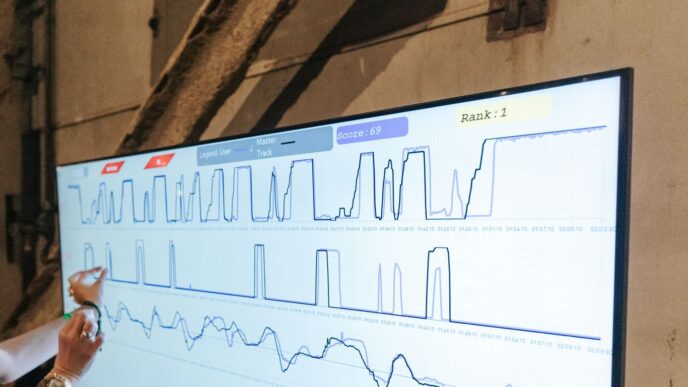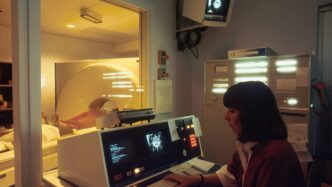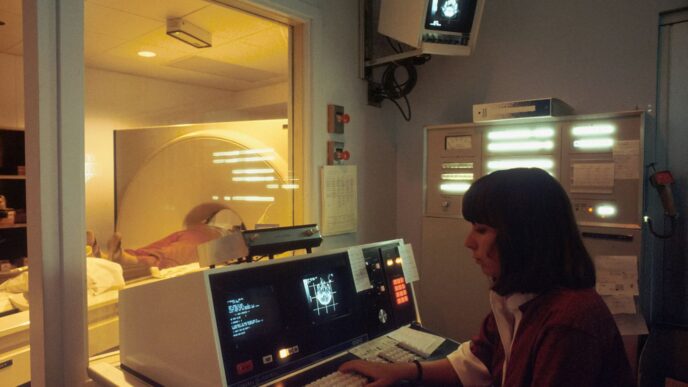Feeling a bit under the weather? It happens to everyone. Sometimes you just want to get a general idea of what might be going on before you decide whether to see a doctor or just rest up. That’s where tools like the Ada symptom checker come in handy. It’s like having a quick, preliminary chat about your health concerns, right from your phone. We’ll look at how this tool works and what makes it a popular choice for many people trying to understand their health better.
Key Takeaways
- The Ada symptom checker uses AI and input from doctors to help you understand your health concerns.
- It asks questions about your symptoms and provides a personalized assessment with possible causes and next steps.
- The app also includes features like symptom tracking and a library of medical information written by doctors.
- Ada prioritizes data privacy and security, and is accessible 24/7 in multiple languages.
- Many users find the ada symptom checker to be accurate and a helpful guide for when to seek professional medical advice.
Understanding Your Health with the Ada Symptom Checker
It can be tough figuring out what’s going on when you don’t feel right. That’s where Ada comes in. Think of it as a helpful tool to get a clearer picture of your health, right from your phone. It’s designed to be easy to use, even if you’re not super tech-savvy.
How the Ada Symptom Checker Works
Basically, you tell Ada what’s bothering you. You answer some straightforward questions about your symptoms, how you’re feeling, and your general health. Ada then uses its smart system, which has been trained by doctors and uses a lot of medical information, to look at your answers. It compares what you’re experiencing with thousands of known conditions. After that, you get a report that suggests what might be going on and what you could do next. It’s not meant to replace a doctor, but it can give you a good starting point.
Benefits of Using Ada for Symptom Assessment
There are a few good reasons to give Ada a try. For starters, it’s available anytime, day or night, so you don’t have to wait for clinic hours. It can also help you prepare for doctor’s appointments by giving you information to share. Plus, you can create profiles for your family members, which is handy if you’re trying to figure out what’s wrong with a child or an elderly parent. It’s a way to get some initial guidance without leaving your house.
Key Features of the Ada App
Ada has a few things that make it stand out. You can track your symptoms over time, which is great for seeing if things are getting better or worse. There’s also a library of health information, written by doctors, that you can look through to learn more about different conditions. And if you speak more than one language, Ada supports several, making it accessible to more people. It’s all about giving you more information to manage your health.
Leveraging AI for Accurate Symptom Analysis

AI-Powered Assessment by Ada
So, how does Ada actually figure out what might be going on when you tell it your symptoms? It’s pretty neat, actually. Ada uses artificial intelligence, or AI, to sort through all the information you give it. Think of it like a super-smart assistant that has read millions of medical books and case studies. When you input your symptoms, the AI compares them against a massive database of illnesses and conditions. It’s not just looking for one match; it’s looking at patterns, how your symptoms relate to each other, and even things like your age and medical history if you provide them.
This AI system is trained by doctors, which is a big deal. It means the technology is built on real medical knowledge, not just random guesses. The process is designed to be interactive. Ada asks you a series of questions, kind of like a doctor would, but it does it in a way that’s easy to follow. The more information you give it, the more refined its assessment becomes. The goal is to provide you with a list of possible causes for your symptoms, ranked by likelihood. It’s a way to get a preliminary idea of what might be happening, right from your phone.
Clinical Evidence Behind Ada’s Accuracy
It’s one thing to say an app is smart, but it’s another to back that up with proof. Ada has been tested and studied to see how well it actually works. Clinical studies have looked into how accurate Ada’s assessments are when compared to what doctors might say. The results from these studies are important because they show that Ada can be a reliable tool for initial symptom checking. While it’s not a replacement for seeing a doctor, its accuracy in suggesting potential conditions is quite high.
For example, studies have shown that Ada can correctly identify the most likely conditions a user might have. This is thanks to the way the AI is built and continuously updated with the latest medical information. The system is designed to be thorough, considering a wide range of possibilities. This evidence is what gives people confidence that they are getting a helpful assessment, not just a generic list of diseases.
Trusted Medical Guidance from Experts
Ada isn’t just a piece of software; it’s a tool developed with medical professionals in mind. Doctors and medical experts are involved in creating and refining the information Ada uses. This means the guidance you receive is based on established medical knowledge and practices. The app aims to provide clear, understandable information about potential conditions, what they mean, and what steps you might consider taking next.
Here’s a look at how expert input shapes Ada:
- Development: Doctors help build the AI’s knowledge base, selecting and organizing medical information.
- Review: Medical professionals review the questions Ada asks and the results it provides to ensure they are medically sound.
- Content Creation: Many of the health articles and information within the app are written or reviewed by doctors, making them reliable resources.
This connection to medical experts is key to Ada’s role as a trusted source for health information. It’s about making complex medical knowledge accessible and useful for everyday people.
Personalized Health Insights and Tracking
Ada doesn’t just help you figure out what might be going on right now; it also helps you keep tabs on your health over time. Think of it as your personal health diary, but way smarter. You can log your symptoms, see how they change, and get a clearer picture of your overall well-being. This information is super handy when you talk to your doctor.
Personalized Health Information
When you use Ada, it learns about you. It takes into account the symptoms you report, your personal details, and even your medical history if you choose to share it. This means the information you get back is tailored specifically to you, not just general advice. It’s like having a health guide that actually knows you.
Symptom Tracking for Health Monitoring
One of the really useful parts of Ada is the ability to track your symptoms. You can record when a symptom started, how bad it is, and any other details you think are important. This creates a timeline of your health.
Here’s a simple way to think about tracking:
- Record: Note down your symptoms as they happen.
- Describe: Add details like pain level, duration, and what makes it better or worse.
- Review: Look back at your symptom history to see patterns.
This kind of detailed record can make a big difference when you’re trying to explain your health situation to a medical professional. It gives them concrete data to work with.
Understanding Your Health Profile
Over time, as you use Ada and track your symptoms, you build a health profile. This profile gives you insights into your body and how it responds to different things. It helps you connect the dots between your lifestyle, symptoms, and overall health. You can see trends, like if a certain activity seems to trigger a particular symptom, or if your symptoms improve after a specific treatment. This knowledge puts you in a better position to manage your health proactively.
Comprehensive Medical Information and Support
Sometimes you just want to know more about what’s going on with your body, right? Ada doesn’t just stop at telling you what might be up with your symptoms. It also has this whole library of information, kind of like a digital encyclopedia for health stuff. It’s put together by doctors, so you know it’s based on actual medical knowledge, not just random internet guesses.
Exploring Conditions with Ada’s Library
Think of Ada’s library as a place to look up health topics. You can find articles about all sorts of conditions, from common things like colds to less common issues. Each topic usually has a breakdown of what it is, what symptoms to look out for, and general advice. It’s pretty straightforward, making it easier to get a handle on medical terms and what they mean for you. For example, you might look up "skin issues after COVID" and find tips on how to help your skin recover from things like dryness or acne.
Health Articles Written by Doctors
What’s nice is that the articles aren’t just dry facts. They’re written to be understood by regular people. Since doctors put them together, they’re reliable. You can read about things like managing symptoms for specific conditions or understanding why certain things happen in your body. It’s a good way to get information that feels trustworthy when you’re trying to figure out your health.
Guidance on Next Steps for Care
After you’ve used the symptom checker and maybe read up on a condition, Ada gives you some ideas on what to do next. This isn’t a doctor’s prescription, of course, but it can point you in the right direction. It might suggest:
- Seeing a doctor soon.
- Trying some home care steps.
- Going to an emergency room if symptoms seem serious.
It helps you make a more informed decision about whether you need to seek professional medical help and what kind of help that might be. It’s like having a helpful guide when you’re not sure what to do with the information you’ve gathered.
Privacy and Accessibility of the Ada Symptom Checker
It’s good to know that Ada takes your privacy seriously. They mention that they follow strict rules to keep your information private. When you use the app, your data is encrypted while it’s being sent, which is a good sign. You can also ask for your data to be deleted if you want. It’s reassuring that they’re upfront about how they handle your information.
One of the best things about Ada is that it’s available whenever you need it. You don’t have to wait for clinic hours or worry about being sick on a weekend. You can check your symptoms anytime, day or night, right from your phone. This 24/7 access means you can get some initial guidance pretty much immediately.
Ada also makes an effort to be available to more people by offering support in several languages. Right now, you can use the app in English, German, French, Swahili, Portuguese, Spanish, or Romanian. This means a lot of users can get health information in a language they’re comfortable with. It really helps make the tool more useful for a wider audience.
Real-World Experiences with the Ada Symptom Checker
User Testimonials on Accuracy
Lots of people have shared their thoughts on using Ada, and it’s interesting to see what they say. Many users mention how surprisingly accurate the assessments felt, especially when they later saw a doctor. One person shared that they were skeptical at first, but after answering Ada’s questions honestly, they got an assessment that their specialist confirmed. They’re now getting treatment for a condition that’s easy to manage. It seems like Ada can really point you in the right direction.
Ease of Use and User-Friendliness
When you’re not feeling well, the last thing you want is a complicated app. Thankfully, Ada seems to get this. Users often describe it as friendly and simple to use. It asks questions in a way that makes sense, and it doesn’t feel like a chore to go through the process. The ability to create profiles for family members is also a big plus for many, making it easier to help out loved ones when they’re sick.
Ada’s Role in Guiding Healthcare Decisions
It’s important to remember that Ada isn’t meant to replace a doctor. Most users understand this and see Ada as a helpful guide. It helps people figure out when it’s really time to see a healthcare professional. By providing a clear assessment and suggesting next steps, Ada can make the process of seeking medical advice feel less daunting. It’s like having a knowledgeable assistant to help you understand what might be going on with your health.
Wrapping Up: Your Health in Your Hands
So, we’ve looked at how Ada can be a helpful tool when you’re not feeling quite right. It’s designed by doctors and uses smart technology to help you understand what might be going on with your health. Remember, it’s not meant to replace a doctor’s visit, but it can give you a good starting point for figuring out your symptoms and knowing what to do next. Plus, you can track your health over time and learn more about different conditions. It’s all about giving you more information so you can make better choices for your well-being.














